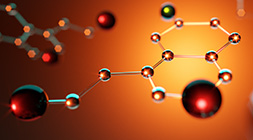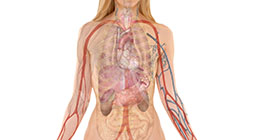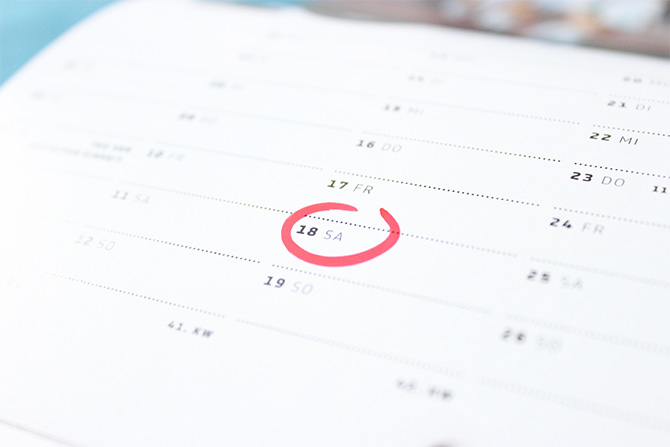Overview
Symptoms
Causes
Prescription
Health Tips
A normal menstrual cycle involves complex hormonal interactions that stimulate the ovaries to produce and release estrogen, progesterone and ova (eggs). The full cycle typically lasts 21 to 35 days, with the first day of menstruation marking the first day of the cycle.
The absence of periods is called amenorrhea. A period typically begins in the early teens and should continue, unless pregnancy occurs, until menopause. When menstruation has never occurred, it is referred to as primary amenorrhea; for women who have missed three or more menstrual cycles it is considered secondary amenorrhea.
A physician should examine girls who have:
- Not started puberty by the age of 13
- Started puberty but do not menstruate within five years
- Reached the age of 16 without menstruating
Symptoms
- No menstrual cycle by the age of 16
- Three or more missed cycles in a row
Additional symptoms may occur as a result of the underlying issue causing amenorrhea:
- Acne
- Bone loss
- Facial hair growth
- Hair loss
- Skin tags
- Weight gain
- Weight loss
Causes
Pregnancy is an obvious cause of missed periods and therefore should be ruled out.
Hormonal problems, including imbalances in the estrogen/progesterone ratio, can interfere with normal cycles.
Both hyper- and hypothyroidism can be a factor in infrequent or absent periods.
Hormonal irregularities such as polycystic ovarian syndrome (PCOS) may prevent the release of an egg, disrupting the hormonal cycle.
High levels of stress or Cushing’s syndrome can cause excess cortisol production, suppressing production of the necessary reproductive hormone DHEA, and resulting in the disruption of periods.
Diseases such as anorexia, excess exercise without increasing food intake, and being overly thin may interfere with the menstrual cycle, as can scarring of the uterus or placental tumors called hydatidiform moles.
Contraceptives, such as, the Mirena IUD, certain birth control pills and the Depo-Provera shot, will stop menstruation from occurring. Additionally, when women come off contraception it can take several months before a normal cycle returns.
Amenorrhea may be caused by a genetic abnormality in the pituitary gland, brain, adrenal glands, ovaries or other components of the reproductive system.
Prescription For Health
For women who have amenorrhea due to PCOS or estrogen imbalances, a diet high in organic vegetables, protein, whole grains (whole buckwheat, millet, quinoa, amaranth), berries, and healthy fats will help to regulate blood sugar levels. Avoid processed foods, especially those containing carbohydrates. For those where exercise or low weight is playing a role, be sure to increase caloric intake and include both high-quality carbohydrates, protein, and fat.
| Nutrient | Dosage | Action |
|---|---|---|
| Indole-3-carbinol (I3C)* | 150 mg | Eliminates excess toxic and cancer-causing estrogens
Has been shown to reverse abnormal PAP tests within three menstrual cycles Halts flooding periods and normalizes menstrual cycle |
| Sulforaphane* | 200 mcg | Hormone balance |
| Curcumin (95% curcumin)* | 50 mg | Prevents abnormal cell growth, detoxifies cancer-causing forms of estrogen |
| D-glucarate* | 150 mg | Important for healthy metabolism of estrogen; supports normal cell growth |
| Di-indolylmethane (DIM)* | 50 mg | Hormone balance
Halts flooding periods and abnormal menstrual cycle |
| Chaste tree berry (Vitex)* | 80 mg | Balances estrogen-to- progesterone ratio |
| Zinc* | 6 mg | Zinc helps to increase progesterone and decrease estrogen
PMS suffers are more likely to have low zinc |
| Borage Oil | 2000 mg daily | Regulates menstrual cycle |
*Can be found in one formula
Health Tips to Enhance Healing
- Work with a doctor or naturopath to pinpoint the root cause.
- Ensure adequate caloric intake from protein, fats, complex carbohydrates, vegetables and fruit.
- If body fat levels are below 17 percent, increase caloric intake, especially if exercising often.
- A period of reduced activity and increased rest may be necessary for women who are extreme exercisers. Instead, opt for gentle forms of activity such as walking and swimming.
- Manage stress levels, this includes reducing physical stress.
- If sedentary, increase activity levels slowly and gently.











